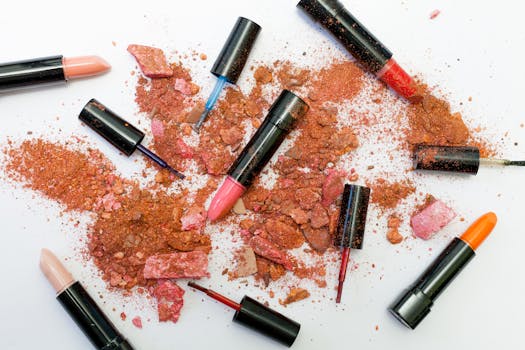Vegan Cosmetics: What They Mean and Why to Choose Them
In recent years, the beauty industry has witnessed a significant shift towards more ethical and sustainable practices. One of the most notable trends is the rise of vegan cosmetics. But what exactly are vegan cosmetics, and why should consumers consider making the switch? This article delves into the definition of vegan cosmetics, their benefits, and why they are becoming increasingly popular among consumers.
Understanding Vegan Cosmetics
Vegan cosmetics are products that do not contain any animal-derived ingredients. This includes not only the obvious ingredients like beeswax and lanolin but also less apparent ones such as certain colorants and emulsifiers. In addition to being free from animal products, vegan cosmetics are also typically cruelty-free, meaning they are not tested on animals.
Key Ingredients to Avoid
When shopping for vegan cosmetics, it’s essential to be aware of common animal-derived ingredients that may be present in traditional beauty products. Some of these include:
- Beeswax: Often used in lip balms and lotions for its emollient properties.
- Collagen: A protein derived from animal connective tissues, commonly found in anti-aging products.
- Keratin: Sourced from animal hair, feathers, and hooves, used in hair care products.
- Lanolin: A waxy substance obtained from sheep’s wool, used in moisturizers.
- Casein: A milk protein found in some foundations and creams.
Why Choose Vegan Cosmetics?
Choosing vegan cosmetics is not just a trend; it reflects a growing awareness of ethical consumerism and environmental sustainability. Here are some compelling reasons to consider vegan cosmetics:
1. Ethical Considerations
Many consumers are increasingly concerned about animal welfare. By choosing vegan cosmetics, you are supporting brands that prioritize ethical sourcing and production methods. This choice helps reduce the demand for animal testing and exploitation in the beauty industry.
2. Environmental Impact
The production of animal-derived ingredients often has a significant environmental footprint. By opting for vegan cosmetics, you contribute to a reduction in pollution, deforestation, and greenhouse gas emissions associated with animal agriculture. According to a study published in the journal Nature, a global shift towards plant-based diets could reduce food-related greenhouse gas emissions by up to 70% by 2050.
3. Health Benefits
Vegan cosmetics often contain fewer harmful chemicals and synthetic ingredients. Many vegan brands focus on using natural, plant-based ingredients that are less likely to irritate the skin. For example, brands like 100% Pure and Pacifica emphasize the use of organic and non-toxic ingredients, making them suitable for sensitive skin.
4. Innovation and Quality
The vegan cosmetics market is booming, leading to increased innovation and quality in product offerings. Brands are now creating high-performance products that rival traditional cosmetics. For instance, Fenty Beauty has launched a vegan line that has received rave reviews for its inclusivity and quality.
Case Studies: Brands Leading the Vegan Revolution
Several brands have emerged as leaders in the vegan cosmetics space, setting examples for others to follow:
- Too Faced: Known for its cruelty-free and vegan products, Too Faced has made a commitment to eliminate all animal-derived ingredients from its formulations.
- e.l.f. Cosmetics: This brand offers a wide range of affordable vegan products, proving that ethical beauty doesn’t have to break the bank.
- Urban Decay: A pioneer in the cruelty-free movement, Urban Decay has a comprehensive line of vegan products that cater to diverse beauty needs.
Conclusion: The Future of Beauty is Vegan
Vegan cosmetics represent a significant shift in the beauty industry towards more ethical, sustainable, and health-conscious practices. By choosing vegan products, consumers not only support animal welfare but also contribute to environmental sustainability and often enjoy higher-quality formulations. As the demand for vegan cosmetics continues to grow, it is clear that the future of beauty is not just about looking good but also about doing good. Making informed choices in our beauty routines can lead to a more compassionate and sustainable world.
